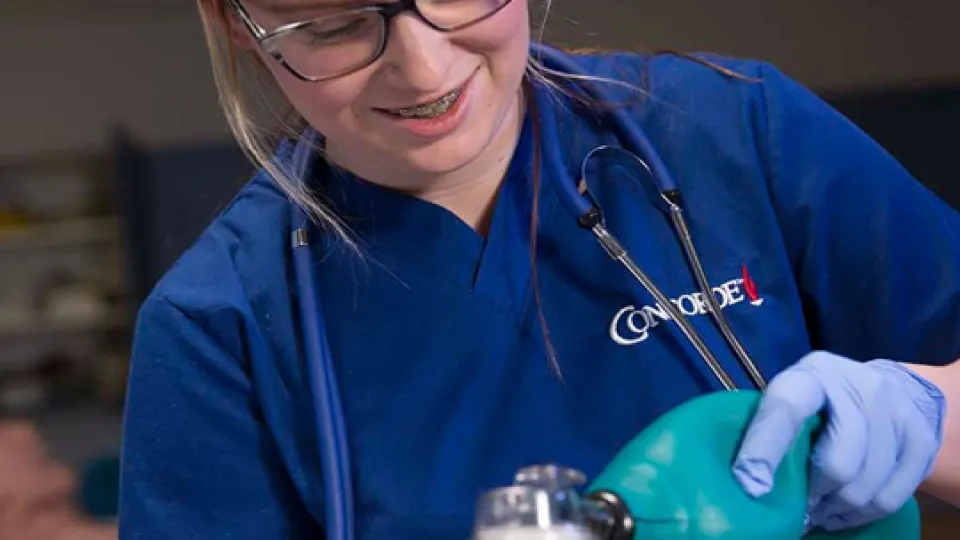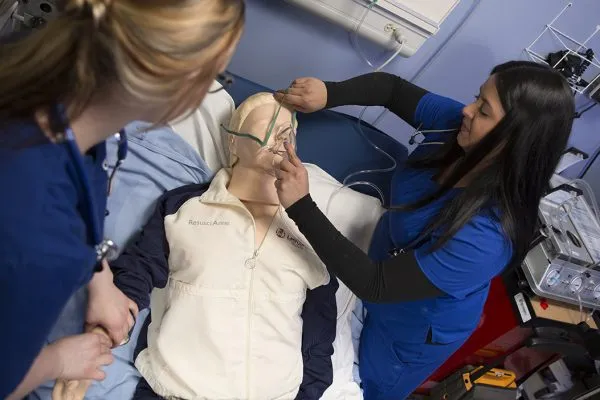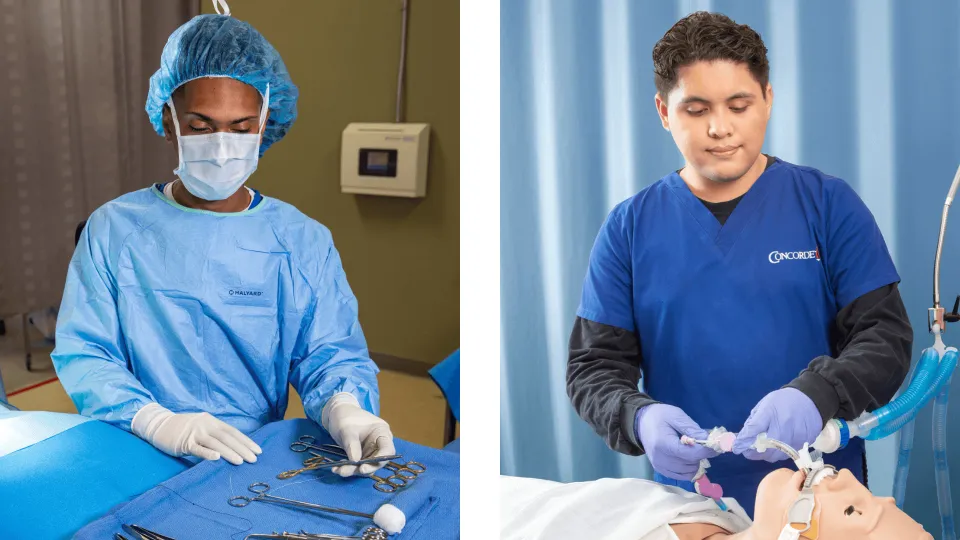
More than 20 years ago, Gretchen Keys watched the pilot episode of what would turn out to be a favorite TV show - ER. Only, what Keys noticed actually made her angry at first.
"While I was a fan of the show, it was very unrealistic," said Keys, Director of Concorde respiratory therapist programs in North Hollywood, CA. "Nurses, doctors, even X-ray technicians were depicted. But, there were no respiratory therapists. Not a one!"
"Who drew the ABGs, assisted the intubations and set up the ventilators? Respiratory therapists, that's who!"
As Keys is quick to point out, a respiratory therapist is an essential member of the health care team in acute care facilities. They respond to rapid responses, code blues, and all other life-saving events. They are found in every area of a hospital - ER, ICU, surgery, recovery, med-surgical floors, clinics, pediatrics, NICU, name it.

"Where patients breathe, that's where respiratory therapists are needed," Keys said. "In fact, the only place you won't find us in the morgue."
Respiratory Therapists needed in other areas, too
"Although mostly seen in the hospital setting, respiratory therapists also are vital team members in other settings," Keys said. As our health care system evolves, respiratory therapists are branching out and moving into other areas.
"Home care and durable medical equipment is a great avenue for respiratory therapists," Keys said. "We deliver equipment to be used in the home such as oxygen, nebulizers, suction machines, O2 saturation monitors, apnea monitors, CPAP, and even ventilators. We educate patients on the proper use of the equipment and do follow-up evaluations."
A new area of interest for RTs is hyperbaric medicine, Keys said. Because hyperbaric medicine uses gas laws of physics, respiratory therapists are a natural for this position.
Related: Should You Study Respiratory Therapy? Career Outlook Guide
More laid back areas for Respiratory Therapists

How To Become a Respiratory Therapist
Respiratory therapists also can work in more laid back atmospheres, such as skilled nursing facilities or rehabilitation centers, Keys said. Or, for the RT who likes to be on the go, how about working in a Breathmobile (mobile asthma clinic) or a mobile ABG lab? Really want to get away? What about being a device educator or a pharmaceutical representative? However, many of these positions require a bachelor's degree.
"Perhaps a 9-to-5, traditional schedule is preferred. Working in a physician's office performing pulmonary function tests or perhaps a school health care worker might be the best option," Keys said. With the increase of asthma-related absences, some school districts are opting for respiratory therapists who hold the credentials to work with asthma programs.
Related: Prerequisites For Respiratory Therapy Programs
Respiratory Therapists in teaching roles
"Finally, being an instructor might be the ideal choice," Keys said. Respiratory therapy instructors have the best of both worlds in that they are clinicians as well as motivators. They get the opportunity to mold the minds of the next generation of therapists, teaching respiratory therapist programs, while helping those in need.
"Ultimately, this was my calling," Keys said. "After working in rehab centers, skilled nursing facilities, acute care hospitals, hyperbaric centers and home care, the teaching bug was the one that kept biting."
"When I think of all the people I've touched through my student.... That number is astounding. Let's say that for each student I taught, graduated and got a job, they each have helped at least 1,000 people. And I've been teaching for more than 10 years and have taught more than 500 students.
"Do the math."
Interested In How To Become a Respiratory Therapist?
Click here to explore Respiratory Therapy Programs near you!
Take The Next Step Towards a Brighter Future
Interested in learning more about our Respiratory Therapy program?
We have a Concorde representative ready to talk about what matters most to you. Get answers about start dates, curriculum, financial aid, scholarships and more!







